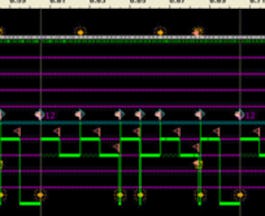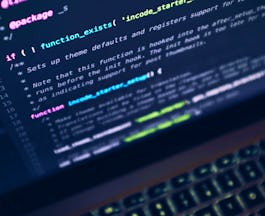Filter by
The language used throughout the course, in both instruction and assessments.
Results for "cryptographic+hardware"

Association of International Certified Professional Accountants
Skills you'll gain: BlockChain

University of Colorado Boulder
Skills you'll gain: Operating Systems, Theoretical Computer Science, Computer Programming, Systems Design

University of Colorado System
Skills you'll gain: Network Security, Security Engineering, System Security, Computer Security Models, Cryptography, Computer Security Incident Management, Cyberattacks, Leadership and Management, Risk Management, Software Security

University of London

LearnQuest
Skills you'll gain: BlockChain, Cryptography, Risk Management

Coursera Project Network
Skills you'll gain: Network Security, Networking Hardware

Skills you'll gain: Computer Networking

Politecnico di Milano
Skills you'll gain: Computer Architecture, Hardware Design, Programming Principles
 Status: Free
Status: FreePolitecnico di Milano

New York University
Skills you'll gain: Network Security, Security Engineering, System Security, Cyberattacks, Problem Solving, Security Strategy, Computer Networking, Critical Thinking, Software Security, Strategy, Cloud Computing, Mobile Security, BlockChain
In summary, here are 10 of our most popular cryptographic+hardware courses
- Understanding, Using, and Securing Crypto and Digital Assets: Association of International Certified Professional Accountants
- VLSI chip design with CPS for Industrial Applications: L&T EduTech
- Real-Time Embedded Systems Concepts and Practices: University of Colorado Boulder
- Design and Analyze Secure Networked Systems: University of Colorado System
- Introduction to Network Security: University of London
- Security for Blockchain and DApps: LearnQuest
- How to Secure your Network Device using Cisco Packet Tracer : Coursera Project Network
- Web Connectivity and Security in Embedded Systems: EIT Digital
- Developing FPGA-accelerated cloud applications with SDAccel: Theory: Politecnico di Milano
- FPGA computing systems: Partial Dynamic Reconfiguration: Politecnico di Milano












